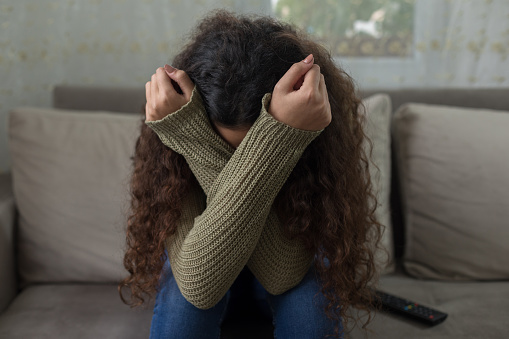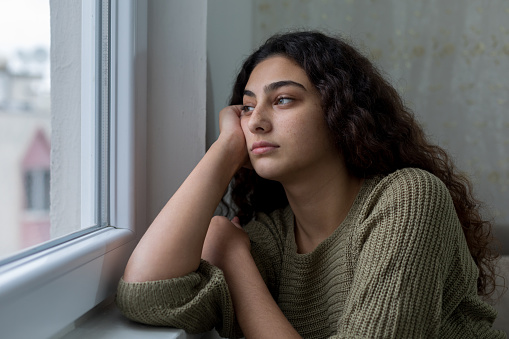
Adolescents are often labeled as being more anxious than young adults, but what are the facts about anxiety disorders in adolescents? They are labeled as more anxious because they experience many social changes, such as moving to a new school, having their first job, and dating for the first time.
The anxiety that they feel is normal, yet they can be helped. Anxiety is a normal feeling that is triggered when you are worried about a situation. This can be good as it can help you to prepare for an event, while it can also be bad, as it can cause you to be concerned about things that you do not need to be.
Anxiety can be in social situations, such as being around new people, meeting new people, attending a new school, or going to a party for the first time. It can also be at home, such as when your parents are not around or when you are worrying about their safety. Adolescence is a period of life when teenagers experience many changes.
These changes can make teenagers feel anxious, and they may seek out help to manage their anxiety. The different types of anxiety that are experienced during this period of life include social anxiety, Generalized anxiety, and Panic disorder. Adolescence is a period of life where teenagers experience many changes and this can make them feel anxious. They may seek out help to manage their anxiety.
Contents
What is anxiety in teens?
Anxiety is a very common problem that often goes unrecognized. It can come from many different causes, including personality or genetic factors, or from environmental factors like the school environment or home life. It presents as follows:
- A sense of worry and fear that is out of proportion to the situation
- Intense feelings of dread or unease
- Panic, which can include trouble breathing
- Persistent thoughts about the future and how they will cope with it
- Trouble sleeping at night
Adolescents face many pressures and difficulties as they attempt to navigate adolescence, such as the rapid changes in their bodies, peers, and social situations. Anxiety is a very common problem that often goes unrecognized.
In fact, it’s estimated that about one in every twelve teens in the U.S. has severe impairment from an anxiety disorder from almost a third of the adolescents who have an anxiety disorder at one time in their adolescence.
Although adolescents can experience anxiety for many different reasons, it often occurs as a result of their development process. They are more likely than adults to worry about being judged by others and to feel worried and afraid.
In addition, they are more sensitive to the possibility of rejection than adults. Because of these heightened fears and sensitivity, they are more likely to experience intense and frightening reactions to minor stressors.
Teenage anxiety doesn’t always have a serious cause and can be temporary. However, if your teen is experiencing anxiety that seems to be getting worse instead of better, it may be a sign of a more serious anxiety problem.
How common is anxiety in adolescence?
Adolescents face many different challenges in their lives that can lead to anxiety. In fact, it’s estimated that 31.9% of adolescents have an anxiety disorder and 8.3% then experience severe impairment. Studies indicate that the prevalence of anxiety disorders is higher in females (38%) than in males (26.1%).
Anxiety disorders are at higher levels in adolescents compared to adults. Anxiety disorders vary in prevalence among teens including:
- 7.6% of teens have separation anxiety
- 2.2% of teens have Generalized Anxiety Disorder
- 2.3% of teens have panic attacks or panic disorder
- 19.3% of teens have a specific phobia
- 9.1% of teens have a social anxiety disorder
Anxiety disorders often start in adolescence and these symptoms don’t always go away as you get older. Nearly 1 in 3 of all adolescents ages 13 to 18 have a diagnosable anxiety disorder which can be chronic or acute.
It is quite common for teenagers/ adolescents to find that they are depressed in addition to having an anxiety disorder. The result is that an anxious lifestyle can be so distressing leading to depression. Thus, emotional disorders are quite common among adolescents.
Causes of Anxiety in Teens

Anxiety disorders are caused by a variety of factors. The following list includes some common causes: genetics, previous trauma or abuse, environmental stressors, differences in the brain, substance misuse (including alcohol and drugs), and stress due to puberty.
Many teens with anxiety disorders have experienced some type of trauma or abuse. It’s important to be aware that anxiety can be the result of an external factor like peer pressure or a traumatic experience. Certain parts of the brain may also play a role in causing anxiety disorders in adolescents.
For example, abnormalities in the prefrontal cortex may make it difficult for teens to regulate their emotions. This can lead them to become more sensitive than adults because they don’t have as much control over their feelings and emotions – which can make their reactions more intense than those of an adult would be in the same situation.
In addition, research has shown that genetics may play a role when it comes to developing anxiety disorders during adolescence. Genes make some kids more susceptible to developing anxiety disorders than others. Studies involving twins have observed that identical twin siblings who were separated at birth (and grew up apart) had higher levels of anxiety than fraternal twins who were raised together.
This suggests that some people are genetically predisposed to develop anxiety disorders at a young age. It’s important to note that just because someone has one cause doesn’t mean they’ll develop an anxiety disorder; these are simply some potential causes for this issue among teens.
- Trauma can lead to post-traumatic stress disorder (PTSD), a condition that often brings on panic attacks and other types of anxiety
- The environment a teen is raised in can also increase their risk for developing anxiety problems; for instance, if they are constantly bullied or living in a chaotic home
- Differences in the brain can cause changes in how it responds to stress. For example, some people may experience physical symptoms like rapid heartbeat or pain when they feel anxious
- Substance misuse such as drug use or alcohol abuse can worsen an existing anxiety problem
- The stress that accompanies puberty may also be a contributing factor Another common cause of adolescent anxiety is negative thought patterns. A teen might think things like “I’m not smart enough” or “I don’t fit in at school.” These thoughts have a tendency to create negative feelings which then worsen any pre-existing problems with anxiety.
Triggers of anxiety in adolescence
Anxiety is a natural part of growing up. This can make teenagers feel uncertain and out of control. It can also make teens feel overwhelmed and unable to deal with their changing world. There are many factors that can cause or exacerbate anxiety in adolescents.
Some of the triggers include physical changes, such as puberty; major life events, like transitioning into adulthood; and environmental stressors, like bullying or violence. The presence of a mental health condition in the family may also trigger anxiety in an adolescent.
Can teenage hormones cause anxiety?
One cause of anxiety in adolescents is hormonal imbalance. The hormone levels are shifting and can lead to the production of excess amounts of cortisol.
Hormonal imbalance, coupled with external stressors, can increase the production of cortisol. Cortisol is the hormone that helps us deal with stress, so when it is too much it can put a teen on edge and make everyday activities feel more stressful. When there’s an imbalance, teens often have trouble falling asleep and experience headaches.
It is important to note that Hormonal Shifts and Mood Swings Hormone shifts are quite common in adolescence. These may be difficult to fathom for some teenagers leading to anxiety.
Those who have other mental health conditions such as depression or bipolar disorder may also experience higher rates of anxiety. Especially if they’re not getting the proper treatment for their condition, teens who struggle with these conditions are at a greater risk for developing long-term anxiety problems.
Can strict parents cause anxiety?
One way that strict parents could cause anxiety is by being overprotective. By being overly protective, parents may be preventing their children from participating in activities like sleepovers or dating. This can lead to increased stress which can cause the child to experience an anxiety disorder.
Another way strict parents can cause anxiety is by putting too much pressure on their children. If you’re constantly feeling pressured and stressed, it’s going to cause anxiety.
Of course, there are some benefits of having strict parents such as better grades and increased self-esteem. But for many teens, strict parenting creates a lot of psychological distress that leads to an anxiety disorder.
Why does my daughter have panic attacks?
Children can get panic attacks due to Phobias, mental disorders such as depression obsessive-compulsive disorder (OCD), or post-traumatic stress disorder (PTSD).
Short-term emotional triggers, such as stress or problems at home, at school, or with friends can lead to panic attacks. However, there are long-term triggers that can also cause panic attacks including:
- Abuse and neglect Genes (some teens inherit genes that make them more likely to develop an anxiety disorder)
- Brain chemistry (teens who have a family history of mental illness are more likely to experience anxiety)
- Pregnancy (many women experience symptoms of postpartum depression following pregnancy).
However, whichever the cause, it is important to know that there are fast-acting medications for panic attacks as well as other non-medical ways to deal with panic attacks including self-care, CBT, counseling, and other methods.
Anxiety Disorders in Adolescents: Types and prevalence
Anxiety disorders are very common in adolescents, but they may go unrecognized. There are different anxiety disorders that affect adolescents. They vary in severity and prevalence as follows:
- Generalized anxiety disorder– 2.2% prevalence among adolescents,
- Social phobia- 9.1% prevalence among adolescents,
- Specific phobia- 19.3% prevalence among adolescents,
- Panic disorder- 2.3% prevalence among adolescents, and
- Separation anxiety– 7.6% prevalence among adolescents.
The other disorders also affect young people but their prevalence is not as high as the disorders above. It is therefore important to seek professional help if your teenager displays the signs elucidated below.
Adolescents face many challenges as they go through adolescence. Anxiety is often a problem that goes unrecognized. In fact, one out of every sixteen adolescents in the U.S. has an anxiety disorder.
Signs of an Anxiety Disorder in Teenagers
There are many signs of anxiety in teenagers and adolescents. They include:
- Increased worry- Persistent and excessive worry about everyday things
- Panic attacks
- Avoiding eye contact and being overly sensitive to criticism or rejection
- Excessive worrying that they’re not good enough
- Trouble sleeping or concentrating
- Change in appetite
- Feeling like they are on a permanent “high-wire” or “tightrope”
- Self-injurious behaviors such as hair pulling, scratching, burning skin, or cutting themselves
- Not wanting to go to school, participate in social events, or do anything fun
- Frequent physical complaints such as headaches and stomachaches
- Behavior changes, like having sudden mood swings, anger, being irritable, or being unusually withdrawn
If your teen is showing any of these signs, it’s important that they seek help from a mental health professional. There are many treatment options available for anxiety disorders in adolescents. The first step is identifying the problem and getting your teen the right treatment.
Anxiety disorder in teenage girls symptoms
There are several symptoms of anxiety disorder in a teenage girls. They include:
- Recurring fears and worries about routine parts of everyday life
- Irritability
- Having trouble concentrating,
- Exhibiting extreme self-consciousness or sensitivity to criticism
- Withdrawal from social activity
- Using the toilet often
- Avoidance of difficult or new situations
- Chronic complaints about stomachaches or headaches
- Chronic worry about the physical symptoms.
How do I know if my daughter has anxiety?
If you want to know if your daughter has anxiety, there are some things you can look for. Some signs that she may have anxiety include not eating properly, quickly getting angry or irritable, and being out of control during outbursts.
Your daughter might also constantly worry or have negative thoughts, feel tense and fidgety, or use the toilet often.
In general, if you think your daughter might be experiencing an anxiety disorder, it is important to speak with her about her feelings and take her to see a therapist or professional who specializes in mental health issues.
Getting Help for Anxiety in Adolescents

If your teen is experiencing anxiety, you should seek help. There are three types of professional treatment for anxiety, including medication, therapy, and self-help strategies. You can find a therapist in the yellow pages or online by looking for “anxiety therapist” or “counselor” in the area near you.
If your teen suffers from more serious symptoms of anxiety, such as panic attacks or obsessions with dangerous objects (such as knives), they may be suffering from an anxiety disorder such as obsessive-compulsive disorder (OCD). In these cases, it’s best to consult with a medical professional about their diagnosis before starting any treatment.
It can be difficult to know how to support your teen when they are experiencing anxiety. However, there are some things you can do to help them feel better and feel more secure in their relationships instead of feeling isolated.
It’s important to take your teen seriously when they express that they are experiencing anxiety. You should first talk to your child about the nature and severity of their anxiety. Ask them what they believe is causing it, and if there is anything that seems to make it better or worse. If you feel like your teen may be experiencing an anxiety disorder, you should consult with a mental health professional.
Your family doctor can refer you to a child and adolescent psychiatrist (if one is available where you live) or a psychologist who specializes in treating children and adolescents with anxiety disorders.
Therapy for anxiety often includes cognitive-behavioral therapy (CBT). It may also include exercises like exposure therapy, which helps people learn how to cope with their fears and anxieties. If antidepressants are prescribed, teens should be monitored closely as these drugs can have negative effects on teenagers’ developing brains.
Does teenage anxiety go away?
Anxiety is a natural part of growing up. It can make a teen feel uncertain and out of control. It can also make teens feel overwhelmed and unable to deal with their changing world. Many teens experience anxiety as a result of changes in their lives. When you’re going through a lot of change, you might feel anxious.
But is your anxiety normal? Or is there something more going on? If you have more than just a little anxiety, you may be experiencing an anxiety disorder. Anxiety disorders are the most common mental illness among adolescents and the most common mental illness overall in the United States.
Anxiety disorders often begin in adolescence or early adulthood, which means that many teens will experience an anxiety disorder at some point in their life. Most people with an anxiety disorder don’t know they have it until they talk to someone who recognizes the symptoms and explains to them what is happening.
It’s important to understand what your symptoms mean so that you can get treatment for them; if left untreated, they can lead to other problems like depression and substance abuse.
The good news is that there are treatments for anxiety disorders, such as cognitive-behavioral therapy (CBT). CBT teaches people different ways to think about things so that it becomes easier for them to manage their feelings around social situations or stressful events without having those feelings take over completely.
With treatment, one study found that 60 percent of people with an anxiety disorder no longer met the criteria for diagnosis.
What if I have an anxiety disorder?
If you have more than just a little anxiety, it’s possible that you’re experiencing an anxiety disorder. If you think you may have an anxiety disorder, it’s important to talk with a mental health professional. There are many different types of anxiety disorders.
Anxiety is a natural response to being in unfamiliar or challenging situations. But if your worries and fears feel out of control or interfere with daily life, it might be time to seek help.
Conclusion
Teenagers are more prone to experiencing anxiety than adults. There are many different factors that can cause a teen to develop an anxiety disorder, but some of the most common ones include their rapid development process, peer/social pressures, and worries about rejection.
If you notice any of these signs in your teen, they may be suffering from anxiety. If you’re looking for treatment options, there is medication and therapy available that can help your teen feel better.
Anxiety is a feeling that most people experience at some point in their life. This type of anxiety is normal and can help you prepare for difficult or stressful situations. However, not all anxiety is good.
If you have more than just a little anxiety, it may be called an anxiety disorder, which can interfere with your ability to function in everyday life. Anxiety disorders are the most common mental health condition among teens, affecting about 31% of adolescents at some point in their lives. In adolescence, many teens experience changes in their lives that trigger this type of anxiety disorder.
These changes might include:
- Parents divorce
- Loss of peer relationships
- Stepping into adulthood
- Major family events like illness, death, or pregnancy.
Teens also often experience anxiety as a result of experiences outside of their control. For example:
- Experiencing a traumatic event
- Experiencing poor academic performance or difficulties in school
- Experiencing bullying
FAQs
What are the most common signs of an anxiety disorder in adolescents?
Common symptoms of an anxiety disorder in adolescents include excessive worry, restlessness, irritability, constant fears and mood swings.
What is the best way to help a teen suffering from an anxiety disorder?
There are several therapies that can help teens with their anxiety disorders. Cognitive Behavior Therapy (CBT) is very helpful because it helps teens to recognize negative thoughts and replace them with positive ones. Other therapies have also proven to be quite successful. Treatment is often tailored on a teen-by-teen basis, as every person experiences anxiety differently and responds best to different treatments.
How should I speak to my adolescent about their anxiety?
Speak to your adolescent about their anxiety by first telling them that you understand how they feel. Anxiety can be difficult for anyone. You may want to ask if there is anything that’s been making their symptoms worse or anything that has helped make them better in order for you to provide assistance. It can be very hard for parents to know what kind of help their teen needs if they are experiencing anxiety. But by asking questions and being understanding, it will help make the process easier for both parties. Your teen may not have any idea what they need so you need to ask questions and try different things until they find something that fits appropriately with them.
What are the biggest worries for adolescents?
Adolescents are often preoccupied with their physical appearance, as well as their relationships with others. They may also worry about whether they’ll be accepted or liked by their peers, and whether they’ll be able to make friends.
What causes anxiety in adolescents?
Anxiety can result from a variety of factors, including changes in the body, social situations, and stress. Teens experience more rapid changes than adults and are more sensitive to rejection. For this reason, teens may respond more intensely to stressful events than adults might.
How do doctors diagnose an anxiety disorder in adolescents?
Doctors typically do not use one specific test to diagnose an anxiety disorder. Instead, they will interview the teen and ask questions related to symptoms such as fearfulness, avoidance behaviors (e.g., staying away from school), difficulty concentrating when there is no external distraction present (e.g., being unable to focus on math homework), feelings of panic or dread (e.g., skin-crawling or heart racing), or constant worrying for no apparent reason (e.g., feeling anxious about getting good grades). In addition to asking questions about symptoms that could indicate an anxiety disorder, doctors will also ask questions about any medical conditions that might cause similar symptoms to anxiety (e.g., hyperthyroidism) and any medications that might contribute to increased anxiety levels (e.g., stimulant drugs). Then they can use the DSM criteria for classifying anxiety disorders
Image source: https://unsplash.com/s/photos/scared-teenager
